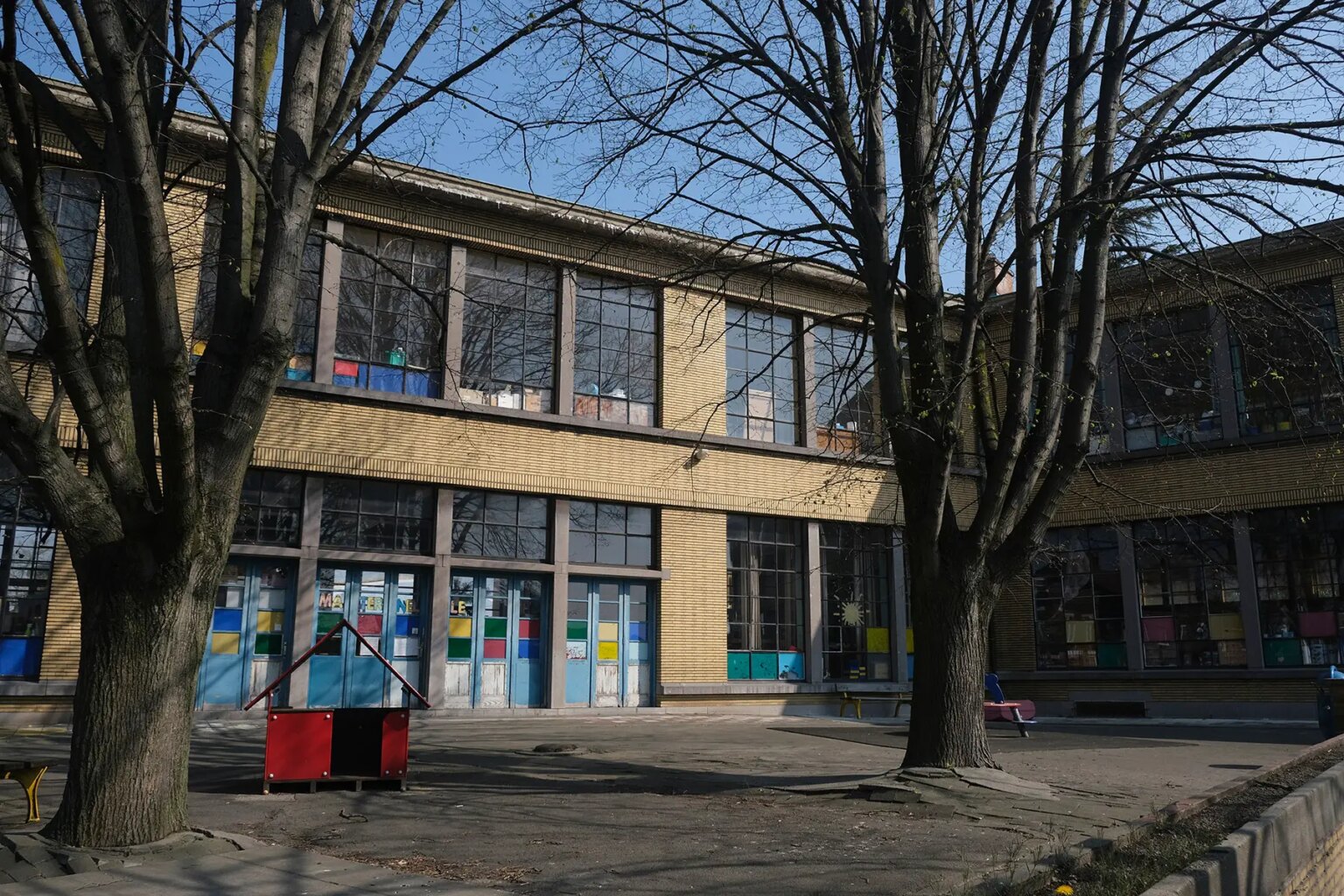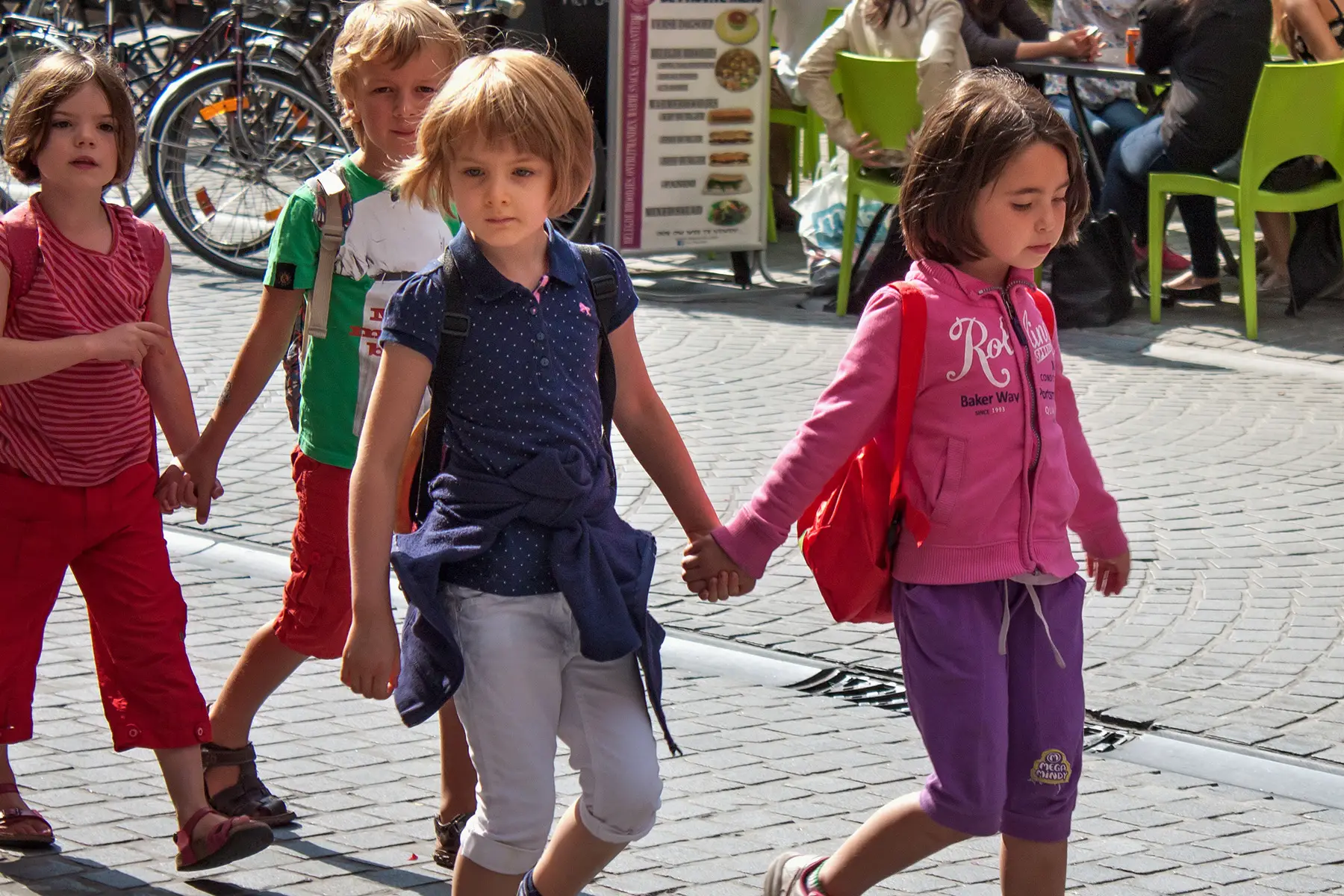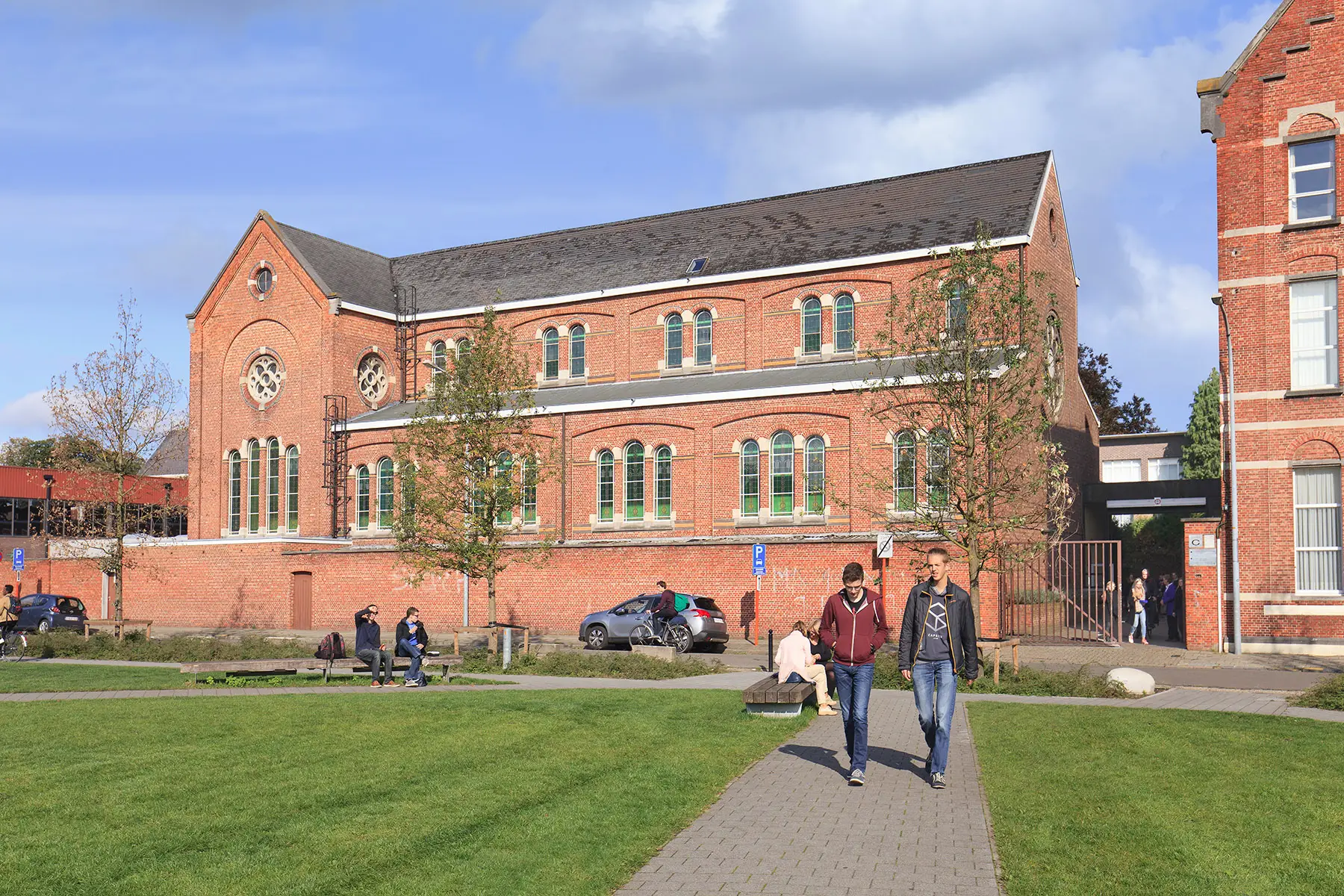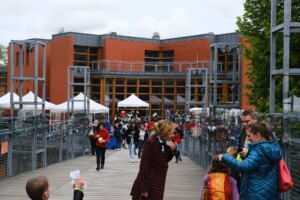There are lots of factors to consider when you start thinking about primary schools in Belgium. Perhaps you want to find a school where your child can be immersed in their new culture and language? Alternatively, maybe are you are looking for an international community or a particular style of education?
At first, the choices may seem overwhelming. However, the good news is that there is an educational style to suit every child. Whatever your preferences, this guide will take you through the options and help you find the best fit for your child. It includes the following information:
BEPS International School
BEPS International School is a leading independent school in Brussels. It provides an internationally-focused education for children aged 2½ to 18 via a challenging, inquiry-based learning experience. BEPS International School offers the International Baccalaureate programs for all ages.
The primary education system in Belgium
The compulsory school age throughout Belgium is between six and 18. Primary education – lager onderwijs in Dutch and enseignement primaire in French – is compulsory from ages six to 12. There are also free pre-primary school facilities for children of 2.5 years. Plus, some international schools offer childcare from as young as six weeks old. Pre-school and primary education are the basic education.
Homeschooling is also legal in Belgium, although regulations can restrict your options.
State/public primary schools in Belgium
Public primary education in Belgium is free to all. Possible costs include trips and learning materials. However, after living in Belgium for a certain period, you can also get financial support for extra costs.
In addition, community schools and some independent schools are subsidized by the local municipality or state, making them free. Subsidized private schools actually make up the largest number of primary schools in Belgium. Most prominently, these schools have a Catholic affiliation, but others have different religious affiliations or alternative methods of teaching, such as Steiner Waldorf. What’s more, local schools are becoming more popular for expat families keen for their children to integrate into the culture and language(s) of their community.

In general, the standard of primary education in Belgium is high. According to a 2019 annual report by the OECD (PDF), almost all children are in education by the age of three. While standards are above the EU average throughout Belgium, they are highest in Flanders.
As with most EU countries, the school year begins in September and is split up into five school holiday periods. The dates are the same across the three language communities. The five holidays are the:
- Autumn holiday
- Christmas holiday
- Carnival holiday
- Easter holiday
- Summer holiday (six weeks)
The curriculum in state primary schools in Belgium
Overall, the curriculum in Belgium state primary schools is fairly traditional. Morning classes revolve around literacy and mathematics, while a range of other subjects, including music and history, in the afternoon. Wednesday afternoons are often free or focus on sport. Because most children enroll in play-based pre-school education from around age three, the transition to formal classes at age six is usually quite smooth.
Classes are taught in the language of the community: French, Dutch, or German. However, with such a diverse language culture in Belgium, schools teach a second official language early on, usually from the fifth year of primary school (age 11). Some schools, those close to a language border or those in Brussels, teach a second language from the third year of primary school (age eight), or even earlier. Some schools do this through immersion classes and teach a subject such as history in the second language.
It’s worth noting that schools in Belgium are notoriously rigorous in terms of assessments. Primary schools carry out assessments at the end of each year to determine whether a pupil is ready to move up. This means that the rate of repeating a year is quite high. Because of this, however, there is less stigma attached to doing so.
The final stage of primary education is the certificate of basic education: certificat d’études de base in the French Community and the getuigschrift basisonderwijs in the Flemish Community. Although individual schools set assessments rather than the government, certificates do guarantee acceptance to secondary education.
Applying to state primary schools in Belgium
The municipality of each language community oversees primary state education and individual schools determine their own enrolment system. However, some factors are consistent. Registration, for example, is not restricted by catchment areas. This means you can choose any primary school for your child without having to worry about where you live. On the other hand, it means that popular schools often have waiting lists. Generally, it is advisable to register your child a year in advance, where possible.
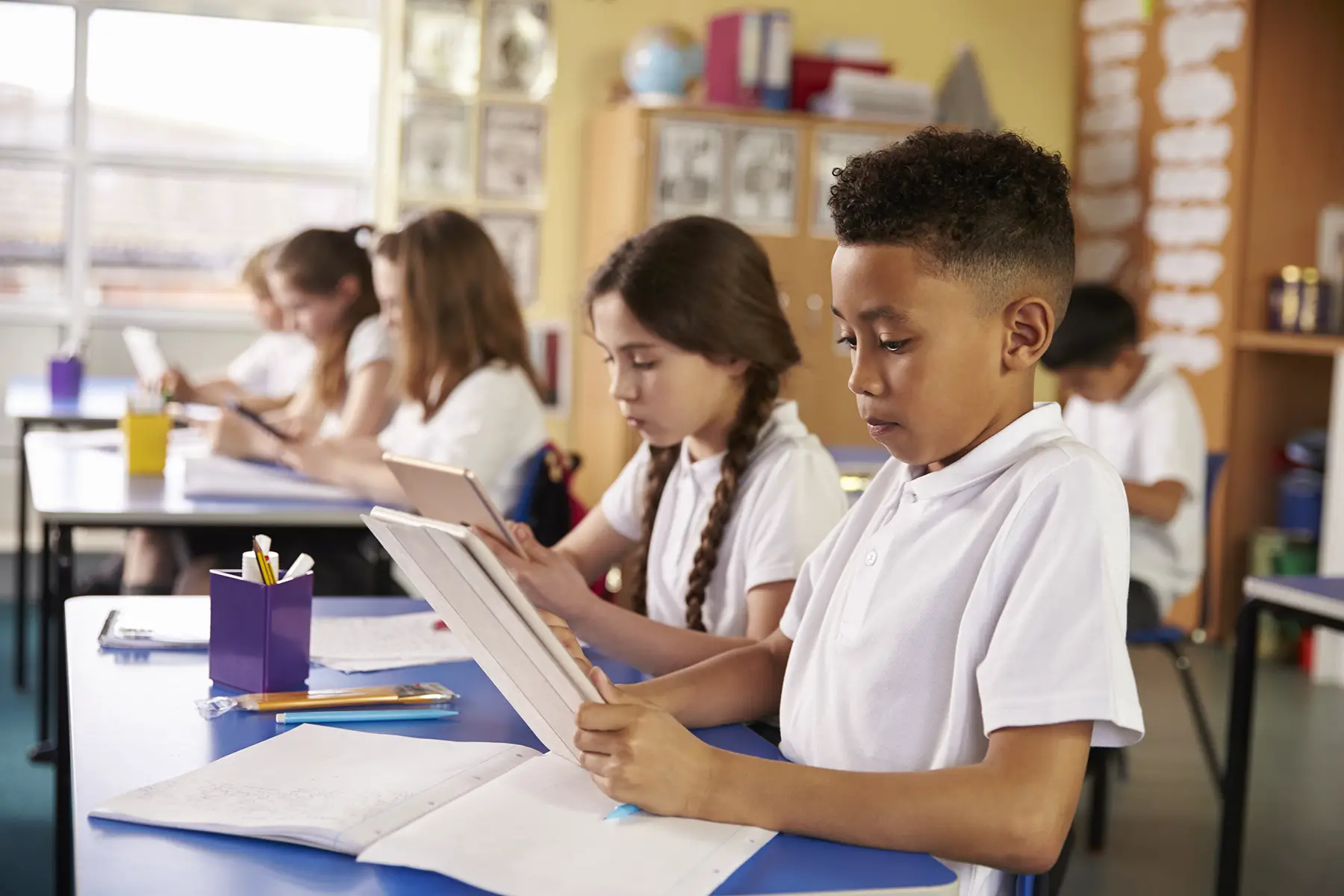
Registration for primary education is non-selective and dependent only on the number of places available. However, children new to the country may have to meet language requirements, which vary in each community. Children applying to Dutch schools, for example, must have spent a minimum of 220 half days in a Dutch-language pre-school to determine language proficiency. Non-Belgian students may be required to undergo a language assessment. In some cases, this is only to assess the level of support required.
All children living in Belgium must be enrolled within the first 60 days of their registration in the municipality. The documents you will need to enroll include:
- proof of identity
- a residence permit for Belgium (if applicable)
- proof of vaccinations in Belgium
- proof of address
- any previous academic records
Those children without official residence documents also have the legal right to register in a school.
For information about the individual systems in each language community, and to register for public schools, visit:
- Enseignement – French-language department for education
- Ostbelgien – German-language education portal
- Onderwijs – Flemish department for education
The pros and cons of state schools in Belgium
Without being familiar with the school system, it can be difficult to decide if a state school is the best fit when moving to a new country. In order to ease the decision process, here is a list of some of the pros and cons of public and state-subsidized education in Belgium.
Pros
- Cost: state education is free to all
- Going to school in the local language and community makes it easier for children to integrate quickly and long-term
- Due to the multiple official languages of Belgium, schools focus on bilingualism from an early age. This means all children will be learning a new language.
- The teacher to pupil ratio is generally above the OECD average in primary schools, meaning smaller class sizes.
- Municipality’s invest in primary education at a level above the OECD average
- Registration is not restricted by a catchment area; as a result, you are free to choose any primary school.
Cons
- There are no central external evaluations of schools, apart from in Flanders. As a result, is difficult to compare standards across schools;
- Funding issues can mean fewer facilities and fewer opportunities for extracurricular activities;
- State primary schools in Belgium do not always have the support for children with SEN. This can lead to difficulties integrating students into mainstream education;
- No catchment area results in competitive enrolment procedures and waitlists for popular schools.
Private and international primary schools in Belgium
Private schools in Belgium do not receive funds from the state or municipality. As a result, they do not have to adhere to the curriculum of the language community that they are in. Of course, it also means these schools require parents to pay annual fees, as well as a one-off enrolment fee. Some private schools offer alternative education methods, such as Montessori. However, the majority of method schools in Belgium are also international, offering bilingual education – mainly in a combination of French, English, Dutch, or German.
International primary schools
In some cases, international schools base their curriculums on a specific national system. Others offer the International Primary Curriculum (IPC) or the International Baccalaureate Primary Years Program. In addition, many international schools also provide education from pre-school all the way through to graduation from secondary school (age 18).
International schools offering primary education in Belgium include BEPs International School.
Fees range from between €6,000 and €35,000 a year. In order for children to enroll, some schools require an aptitude test or academic and language assessments. While less common than in other countries, a small number offer boarding facilities, including Saint John’s International.
Montessori schools
Perhaps the best-known alternative style of education, Montessori Schools focus on holistic child development and independent learning for children of primary school age. Class sizes are generally small. The majority of Montessori schools offer education and childcare from preschool age (two years) to age six, or to the end of primary (12 years). However, a few, like the International Montessori Savoorke take children from as early as six weeks.
The pros and cons of international schools in Belgium
Undecided whether an international school in Belgium is the right choice for your child? Below is a list of pros and cons to help you navigate the options.
Pros
- International Schools usually have better facilities, including green spaces and sports facilities
- Students can study towards internationally recognized qualifications
- As many international schools in Belgium offer education from 2–18 years, they can offer consistency
- Class sizes tend to be smaller that state or subsidized schools
- Parents will be able to communicate with the school in their own language if not able to speak the local language
Cons
- International school fees can be very costly. Fewer companies now offer packages to cover the cost of children’s education
- Children will have less of an opportunity to integrate in the local culture and language
- Most international schools are located in Brussels. If you live elsewhere, there may be fewer options
- Entry tests can also restrict your options
Useful resources
- Schola Europaea – offers more information on the European Baccalaureate
- Montessori Europe – more information on Montessori schools
